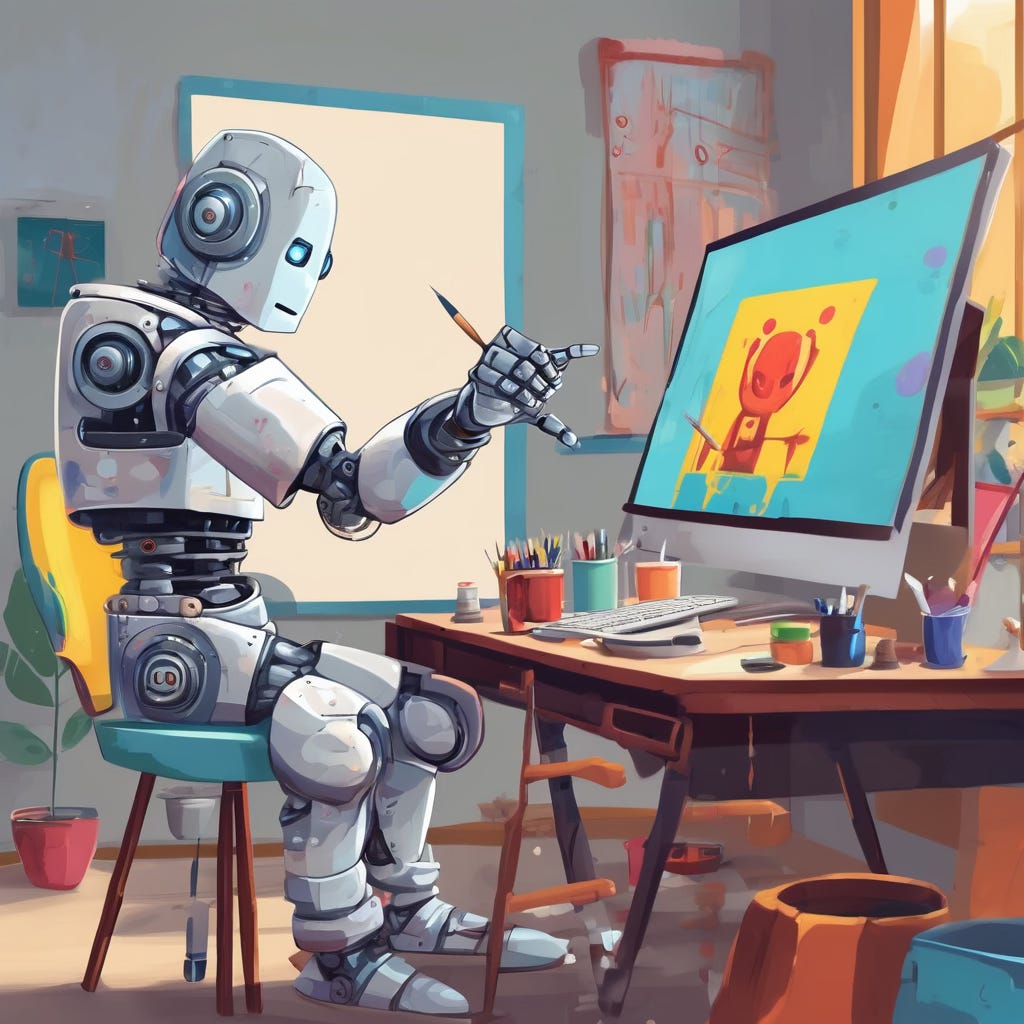Redefining Handmade: AI-Generated Art in the Digital Age
Etsy (with the tagline: “There's a person behind every piece”), a leading e-commerce platform with over 90 million active buyers, five million sellers and over 50 million unique listings, has recently started accepting AI-generated art and products. A significant policy shift towards innovative digital creations. Previously, Etsy had stringent guidelines banning AI-produced items. Etsy competes with platforms like Amazon Handmade, eBay, Shopify, and many other specialized and smaller digital marketplaces. The global digital e-commerce market is estimated to be over $5 trillion in 2023. The market is expanding rapidly due to increasing internet and mobile usage and digital payment solutions.
Etsy experienced significant growth during the COVID-19 pandemic, with active buyers rising from 46 million in 2019 to over 81 million by the end of 2020, and gross merchandise sales nearly doubling from $5 billion in 2019 to $10.28 billion in 2020, reaching $13.49 billion in 2021, driven in part by the surge in face mask sales.
This decision to list AI-generated art and products signals a shift in the platform's previously policies and could represent a significant advancement for digital creators and artists. Etsy's rationale for this policy change is that AI is merely another tool for digital artists, akin to using a brush, paint, and canvas to create new art.
Imagine this scenario: You wake up one morning, feeling inspired. While sitting in bed, you use your laptop computer to access your favorite AI image generator – be it DALL-E, Stable Diffusion, or another program – and prompt it to create "a happy robot painting a creative portrait of a human." Within moments, digital art materializes on your screen. (See image above created in DALL*E.)
In the past, this creation might have been relegated to your personal collection or shared on social media. Now, thanks to Etsy's new policy, you can potentially monetize this AI-generated artwork by listing it on their platform alongside traditional handcrafted items.
This development raises intriguing questions:
How will this impact traditional artists on Etsy and similar platforms?
What does this mean for the definition of "handmade" in the digital age?
How will Etsy ensure quality control and prevent potential copyright issues?
Etsy may have begun accepting AI-generated art and products as part of a strategic shift in its platform policies, aimed at fostering growth and scaling its marketplace. This change could reflect Etsy's commitment to supporting broader creative expression, adapting to new technologies, or, to put it bluntly, continuing to drive revenue gains.
This situation presents an intriguing dilemma that many other businesses may also encounter. As we stand at the intersection of technology and creativity, Etsy's decision to embrace AI-generated art could offer a glimpse into the future of online marketplaces. This move opens new possibilities for aspiring digital artists while potentially challenging traditional notions of what constitutes authentic, handcrafted art.
What are your thoughts about this development as it applies the art world? Does the sale of AI-generated art on online marketplaces excite you with its potential, or does it raise concerns for you?
Share your opinions in the comments below.



Great post, Doug, thanks for sharing. I think that "Made By Humans" (and not by AI) will be a marketing advantage, as "Made In the USA" has been for years.